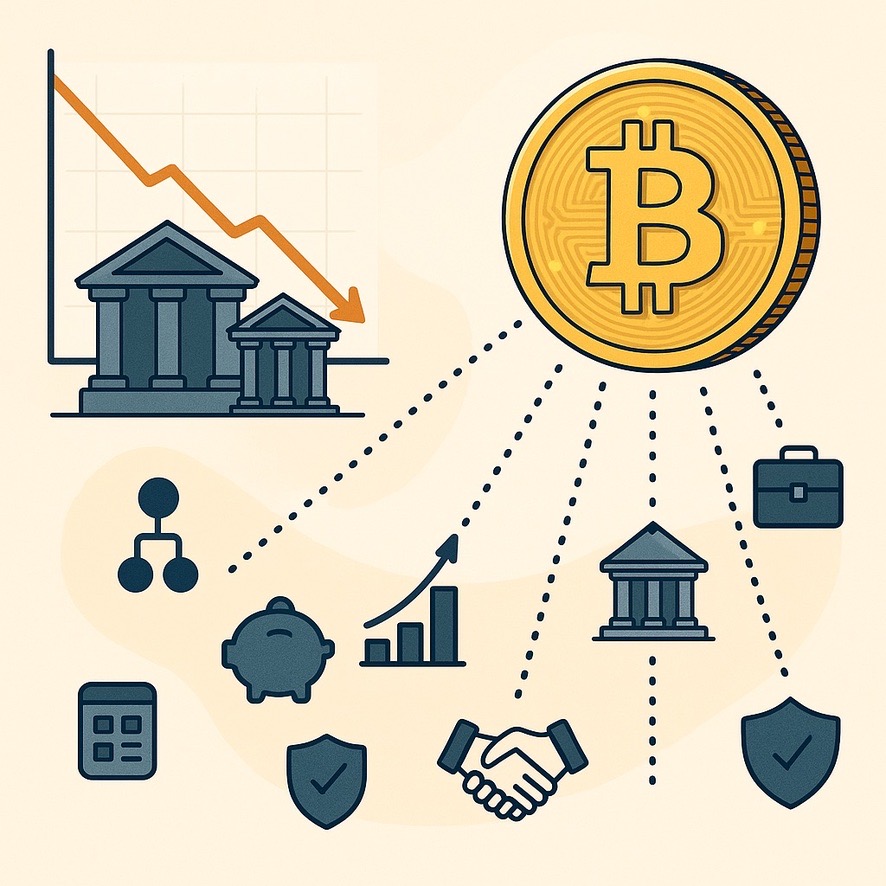The Origin of Bitcoin Reserves: A Personal Journey Since 2008
A personalized Bitcoin Reserve Verification Proposal
Problem
The idea of holding Bitcoin reserves was born for me during the 2007–2008 mortgage crisis. At the time, I owned three businesses and had no idea that the crash would affect them. I was shocked to see the centralized fiat system start to sink—and with it, everything tied to it.
That experience sparked a relentless desire to never again depend on fiat banking. In 2008, I found my answer on the bitcointalk forum and launched my own Bitcoin node.

Solution
Bitcoin was intentionally designed to be simple and robust. It doesn’t support traditional smart contracts, and even adding a message to a transaction is technically complex and costly. And that’s exactly how it should be. Simplicity is security. That design choice also excludes most Layer 2 networks.
Use Case
Still, I wanted Bitcoin to function as a bank for my business. And if you can prove ownership of a Bitcoin wallet—publicly and verifiably—it unlocks incredible business value:
1. Reputation boost
2. Guarantee of obligations
3. Brand credibility
4. Partner confidence
5. Deal assurance
6. Legitimacy for meme tokens
7. Seriousness of your DAO
8. A public savings wallet
9. Withdrawal guarantees
10. Trading collateral
11. Support for independence
12. Growth signaling
13. Fundraising potential
14. Capital protection
15. Financial sovereignty
16. Inflation hedge
17. Asset diversification
18. Investor trust
19. Liquidity assurance
20. Strategic positioning
21. Risk mitigation
22. Operational financing
Web2 + Web3 = Public Bitcoin Reserves
We use Web2 tools to validate ownership of your Bitcoin wallet by linking it to your website and social media. The wallet never leaves your control, but the reserves become publicly verifiable.
The result? A trusted, third-party-confirmed Bitcoin reserve that you can proudly publish. Transparent. Real. Yours.
Because let’s face it—self-declared reserves are worthless. Anyone can paste a rich address and claim it’s theirs. True trust comes only from independent verification.
In future articles, we’ll explore real-world use cases of Bitcoin reserves for small businesses. Follow along.
Summary (GPT Digest)
• The 2008 crisis exposed the weakness of fiat banking and inspired a personal move toward Bitcoin.
• Bitcoin’s simplicity and limitations are features, not flaws.
• Publicly verifiable Bitcoin reserves can transform a business’s credibility and financial structure.
• By combining Web2 (identity verification) and Web3 (wallet ownership), businesses can prove reserves without ever giving up custody.
• Third-party validation is essential—self-verification lacks integrity.
• Future articles will explore specific business use cases.
We don’t hold your funds — we only verify reserves